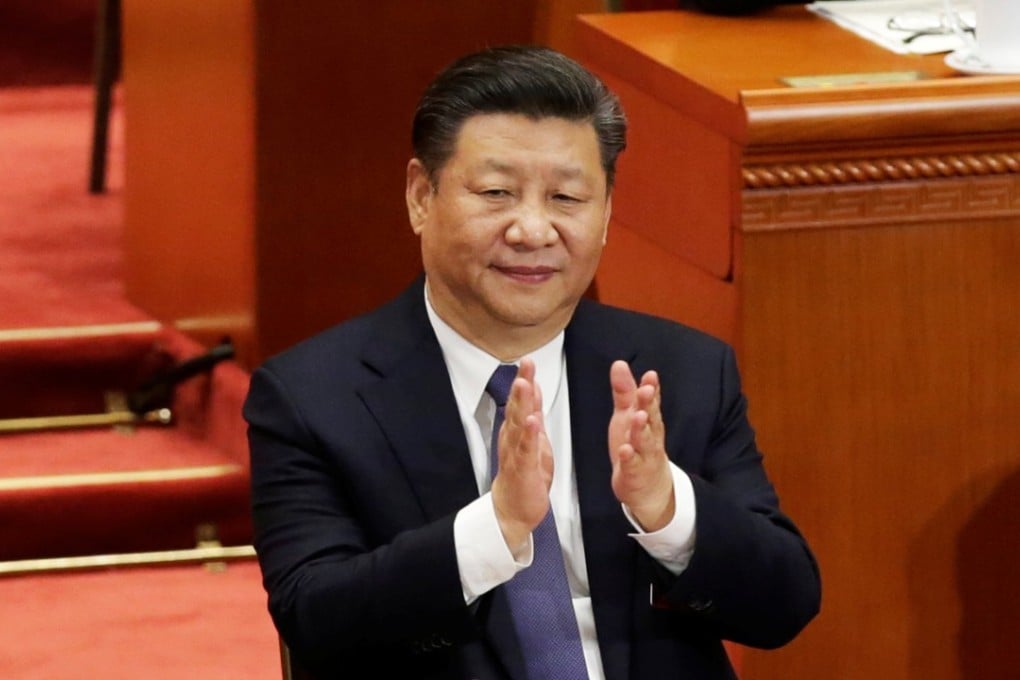Chinese President Xi Jinping confident and relaxed as lawmakers vote to remove term limit
Constitutional revisions receive highest approval since 1999, with voting process completed in record time

Under the watch of a confident and relaxed President Xi Jinping, nearly 3,000 Chinese lawmakers were nearly unanimous in their approval on Sunday of changes to the state constitution that included removing the term limit on the presidency.
Xi, who had maintained a poker face throughout the opening day of China’s parliamentary session last Monday, appeared much more at ease on Sunday. He even smiled when Wang Cheng, the vice-chairman of the National People’s Congress, announced the final result of the voting. Only two of the 2,964 deputies voted against the constitutional revisions, three others abstained and one ballot was declared invalid.
This year’s constitutional revisions received the highest approval rating for such a move since 1999, with the whole voting process also completed in record time. The last time China amended its constitution, in 2004, it took almost two hours. Now, thanks to technology, the lawmakers took less than an hour to pass what was considered the most ambitious revision to the country’s modern constitution since its first draft in 1982.
There was no debate, no discussion and not even canvassing. The whole event was meticulously managed to the last detail. All the deputies gathered at the Great Hall of the People in Beijing at 3pm sharp. Each received a pink ballot paper the size of an A4 sheet. They were given a short briefing on how to use a specially designed pen to tick the box of their choice before putting the completed ballot papers in 28 red, electronic ballot boxes designed to immediately scan and record the results.
